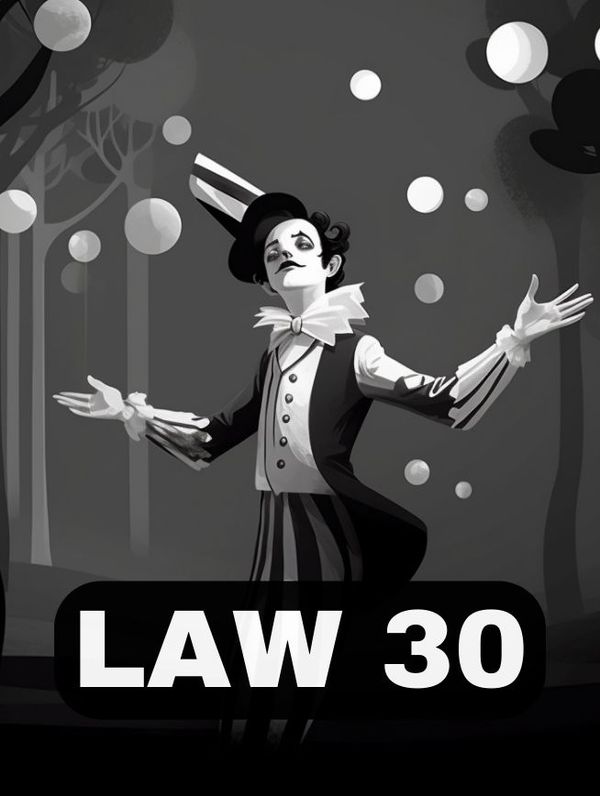In the journey of personal and career growth, a pivotal yet often overlooked skill is the ability to ask strategic questions. This is especially true in the dynamic world of marketing, where understanding broader contexts and exhibiting strategic insight are as crucial as hands-on task execution.
Questions serve a greater purpose than just seeking immediate answers. They are a strategic tool that can provoke a deeper understanding, foster open dialogue, unveil opportunities, and stimulate innovation.
Well-crafted questions can help to clarify objectives, dissect processes, identify gaps, and lead to more informed decision-making. Moreover, the types of questions you pose can serve as a snapshot of your perspective, strategic thinking ability, and potential for leadership.
Questions Reflect Your Role and Perspective
An intern may ask, "What is our main marketing goal for this campaign?" reflecting a desire to understand their task's purpose. A marketing director, on the other hand, might ask, "How can we align our marketing strategy with the company's overall business goals?" This question indicates a higher-level perspective, considering the company's broader objectives and strategic alignment.
The questions asked at each level align with the responsibilities of the role. Lower-level roles often focus on immediate tasks and outputs, while senior positions require strategic thought and an eye on the big picture.
Imagine you start asking questions that reflect the considerations of a role one or two steps ahead of yours. This doesn't mean you disregard your current responsibilities. Instead, it means you're actively seeking to understand your role within a larger context, demonstrating your readiness for growth and increased responsibility.
Cultivating a culture of curiosity is a key driver for businesses to thrive in a competitive market. When employees at all levels feel encouraged to ask questions 'above' their role, doors open to innovation, improved processes, and better business outcomes.
The questions you ask could significantly influence your career progression.
As such, it's crucial to elevate the nature of your questions as you ascend in your role. This practice signals your readiness for higher responsibilities, contributes to your personal development, and broadens your perspective of the organization.
For a long time i've considered turning this topic into a book of its own.
There is so much to unpack.
Over the years, I've witnessed how strategic questions can change people's perceptions in seconds. Asking the right questions can make people stop, think and ponder.
Here are some role-specific questions you can use as a starting point. Bear in mind, the examples below are based on a very hierarchical leadership structure:
Marketing Intern:
- What is our main marketing goal for this campaign?
- How do we measure the success of our campaigns?
- Who is our target audience for this particular product or service?
- How can I assist in executing the marketing strategy effectively?
- Can you explain how our marketing strategy aligns with the company’s overall business strategy?
Marketing Coordinator / Assistant:
- How does our marketing strategy differ between our various products or services?
- What metrics should I focus on in my reports?
- What strategies have been most effective in reaching our target audience?
- Can you provide more context about how our marketing efforts directly influence sales?
- How does our social media strategy fit into the overall marketing plan?
Marketing Manager:
- What's the long-term vision for our marketing efforts?
- How does our budget allocation across various channels reflect our strategic priorities?
- What’s the ROI for our different marketing campaigns?
- How are we keeping pace with changes in our industry and marketing trends?
- How can we improve our team’s collaboration with sales, product, and other teams?
Director of Marketing:
- How can we further align our marketing strategy with the company's business goals?
- What are the key marketing trends we should capitalize on?
- What are the gaps in our current marketing strategy and how can we address them?
- How can we improve the effectiveness and efficiency of our marketing team?
- How do we foster a culture of innovation and creativity within our team?
Vice President of Marketing:
- How should we adjust our strategy to meet changing market conditions or competitive landscape?
- How can we use data and analytics more effectively to inform our decisions?
- How do we maintain brand consistency across all channels and touchpoints?
- How can we better understand our customer journey to improve our marketing efforts?
- What's our plan for talent development within the marketing team?
Chief Marketing Officer (CMO):
- How does our marketing strategy support our business strategy over the next 1-3 years?
- Are there opportunities for strategic partnerships or collaborations to boost our marketing efforts?
- How can we leverage new technologies or approaches to stay ahead of competitors?
- How can we create a customer-centric culture throughout the organization?
- What's our contingency plan if our current marketing strategy doesn't deliver the expected results?
Keep in mind, these questions are just examples and should be adjusted to reflect the specifics of your company, industry, and current business environment.
Hopefully this is food for thought.
T3B








